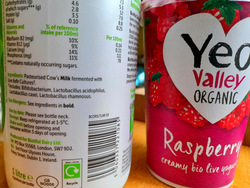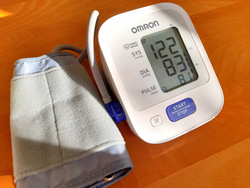Napping may be beneficial for your brain, according to joint research by University College London, Harvard University, and University of the Republic in Uruguay. The study aimed to uncover any potential causal relationship between daytime napping, cognitive function and brain volume. It focused on reaction time and memory because these cognitive abilities tend to decline as people get older. It also examined the hippocampus (an important brain structure for memory) and total brain volumes because they play a significant role in explaining differences in memory and overall thinking skills.
Genetic markers were used to assess the relationship between exposures and outcomes (such as certain traits or diseases). Data was drawn from nearly 379 000 people aged 40-69 who had participated in the UK Biobank study (a large-scale biomedical database). Magnetic resonance imaging (MRI) was used to assess brain volumes; computerised games that involved identifying matches of cards, were used to test cognitive abilities.
The researchers discovered that people who had genetic variations associated with napping also had larger total brain volume on average. The team says “…as far as we know right now, taking a brief nap in the early afternoon may be restorative and re-energising for those who need it – and may also be beneficial to brain health.”
(Study: Napping may be beneficial for your brain – here’s how. UCL News, 23 June 2023.)

 University-based authors in Malaysia have concluded that honey enhances cognition and memory, following a review of 34 studies on honey consumption, and the physical and/or psychological health of the brain. The studies, selected from an initial 330, were a combination of human and animal studies. Beneficial effects were reported in human subjects for mild cognitive impairment, dementia prevention and short-term memory.
University-based authors in Malaysia have concluded that honey enhances cognition and memory, following a review of 34 studies on honey consumption, and the physical and/or psychological health of the brain. The studies, selected from an initial 330, were a combination of human and animal studies. Beneficial effects were reported in human subjects for mild cognitive impairment, dementia prevention and short-term memory. Researchers at the University of North Carolina have presented a study at July’s American Society for Nutrition conference, suggesting that a particular probiotic may help mild cognitive impairment, and cognitive performance more generally.
Researchers at the University of North Carolina have presented a study at July’s American Society for Nutrition conference, suggesting that a particular probiotic may help mild cognitive impairment, and cognitive performance more generally.  Researchers at Canterbury Christ Church University in Kent, have concluded that isometric exercises like planks are best for lowering blood pressure. They performed a meta-analysis of 270 randomised controlled trials, involving nearly 16 000 people, and compared the effects of various forms of exercise on blood pressure.
Researchers at Canterbury Christ Church University in Kent, have concluded that isometric exercises like planks are best for lowering blood pressure. They performed a meta-analysis of 270 randomised controlled trials, involving nearly 16 000 people, and compared the effects of various forms of exercise on blood pressure. A study in Germany suggests that left to their own devices, people need more sleep in winter, and experience more REM (rapid eye movement) sleep. A team at the Charité Medical University of Berlin recruited 292 patients who had undergone hospital sleep studies. Such studies are regularly carried out on patients who experience sleep-related difficulties. They make use of a laboratory where patients are asked to sleep naturally without an alarm clock. The length, quality and type of sleep can then be monitored. Although sleep disorders in this population could potentially affect the results, this method of recruitment offered a large cohort, evenly spread throughout the year, allowing for the investigation of month-to-month differences.
A study in Germany suggests that left to their own devices, people need more sleep in winter, and experience more REM (rapid eye movement) sleep. A team at the Charité Medical University of Berlin recruited 292 patients who had undergone hospital sleep studies. Such studies are regularly carried out on patients who experience sleep-related difficulties. They make use of a laboratory where patients are asked to sleep naturally without an alarm clock. The length, quality and type of sleep can then be monitored. Although sleep disorders in this population could potentially affect the results, this method of recruitment offered a large cohort, evenly spread throughout the year, allowing for the investigation of month-to-month differences.